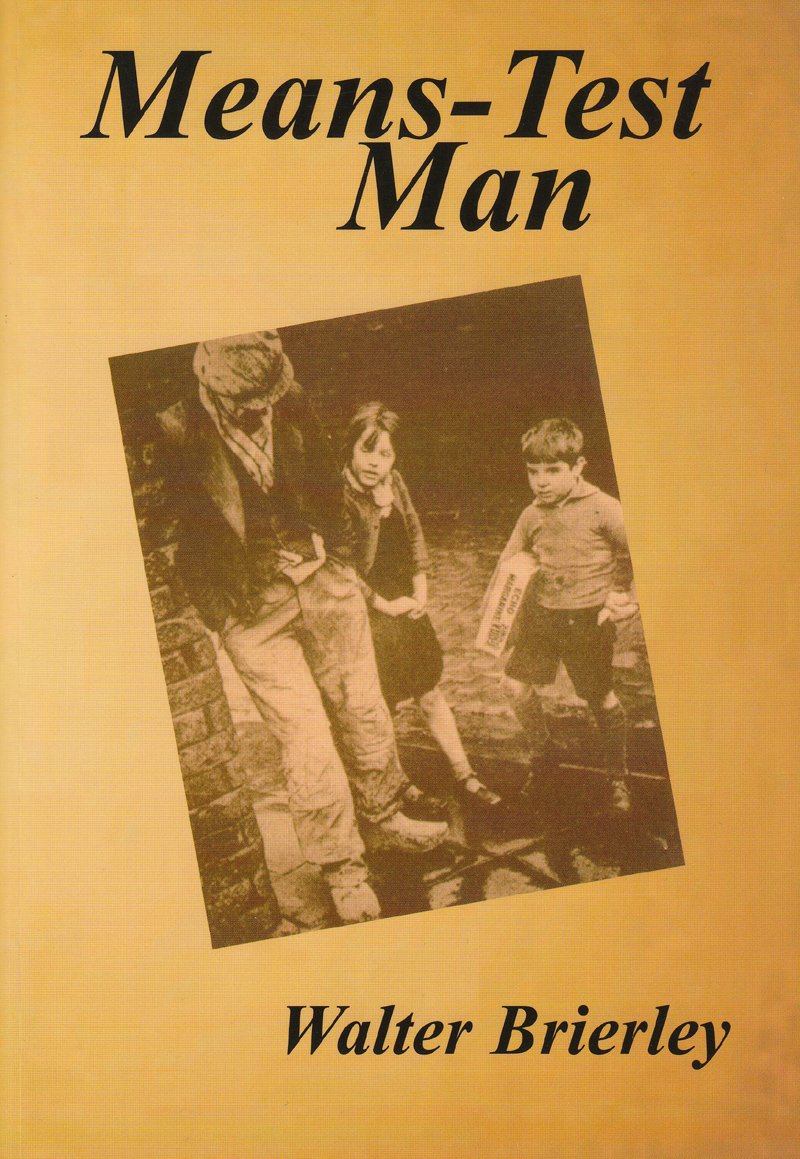Inspiring Older Readers
 posted on 05 Dec 2017
posted on 05 Dec 2017
Means-Test Man by Walter Brierley
Published in 1935, Walter Brierley’s Means-Test Man was, by 1939, considered to be as essential to understanding the working class experience as Walter Greenwood’s Love On The Dole or in the US, Upton Sinclair’s The Jungle. Whilst the latter two have held their public reputation, Brierley’s work went out of print and the author also slipped out of sight. This was, regrettably, quite a common story for many working class authors of that period whose reputations seem to have been airbrushed out of history.
Brierley was a miner who struggled hard to find a way out of working in the pit and he managed to do so eventually with the help of adult education and the mentorship of other working class novelists who were part of what was known as The Birmingham Group. In recent times debates have raged over the notion of what constitutes ‘proletarian literature’ or ‘working class writing’ and it’s a debate that is very usefully summed-up by Andy Croft in the introduction to the 1985 reprint that I have been reading. He notes that the distinction can be made between working class writers who primarily write about their own experiences and those who have aspirations to write, as working class people, about a much wider range of subjects and to explore topics imaginatively. It could be argued that Brierley started out doing the former but he certainly had aspirations to also be a more complex novelist. But his sucess only really came when he was writing in a semi-autobiographical form and when he attempted bigger and more diffuse themes, his reputation began to suffer.
What is clear is that Brierley’s power as a writer really rests on the emotion he invests in his own experiences – especially those of his time unemployed in the 1930s. The trauma of his own run-in with the dreaded means-test when he was out of work has directly informed this novel.
What Brierley's book gives us is a day by day exploration of the lives of Jack and Jane Cook and their seven-year-old son, John, over the week between the Friday visits of the means-test man in whose hands the families qualification for social welfare support rests. For those who found themselves out of work for extended periods following the economic depression of the 1930s ( and there were lots of them), the only welfare support they could get was based on the family establishing they had no possible other source of income and they were subject to the most humiliating and intrusive visits from the means-test man who would check all their most private family circumstances.
Starting with Saturday and progressing day by day, Brierley tells us about how the family tries to make the pittance they get stretch out and how they try to live rather than just exist. The whole week has its stresses and its own rhythm as Brierley uses each day to showcase the problems and humiliations that families stuck on welfare support had to face but the real strength of the book is the way the relationship between husband, wife and child ebbs and flows.
Jack is a good man who is struggling to retain his sense of dignity and humanity in the face of seemingly hopeless circumstances but his wife is so humiliated she hides away from her neighbours and family. The tension between the two is tangible and Jane has become harsh and shrewish, often seeking to hurt her husband’s feelings as a way of externalising her own sense of worthlessness. Inevitably the emotional violence between mother and father spills into the world of John who is too young to understand what’s going on but wants to please his parents.
There is, of course, no ‘story’ as such and there’s no resolution – this is just one week in what is certain to be many. Will they survive as a family and what will it do to them all as individuals? These are, depressingly, the questions left hanging when you close the book.
Brierley’s book did come under some attack from the Left when it came out because Jack and Jane were considered as too passive, too willing to endure their suffering without being prepared to name and condemn those responsible for their plight. And it’s certainly true that unlike many of the other books coming from the Left and dealing with unemployment at this time, this book is almost devoid of explicit politics and certainly doesn’t promote a specific ideological perspective. This is all left implicit – it’s certainly there but it isn’t shouting in your face. And for those who believed that the role of fiction was to be politically didactic this was a fatal flaw because they held that literature was a vital weapon in the class war and Brierley had failed to deploy it effectively. From where we sit now that looks like a rather clumsy, even brutal, analysis - the reality was that poverty broke the spirits of many good people and Brierley's portrait is faithful to that set of issues.
I think that today’s readers will be more receptive to the more subtle messages that are loaded into the book and many of its messages are still relevant today for those living on the margins. Perhaps it’s time for another reprint that will bring this title to a wider modern audience?
Terry Potter
December 2017